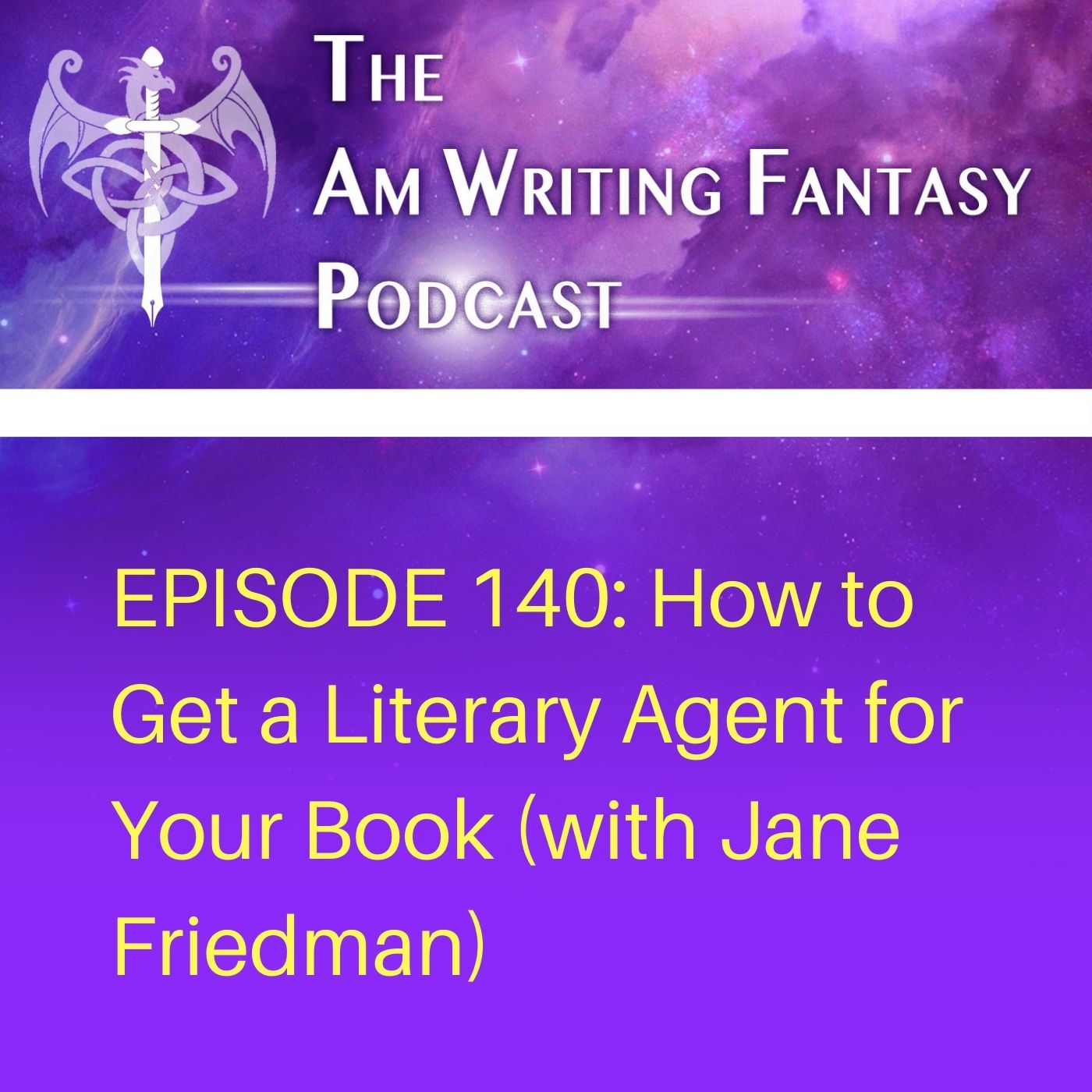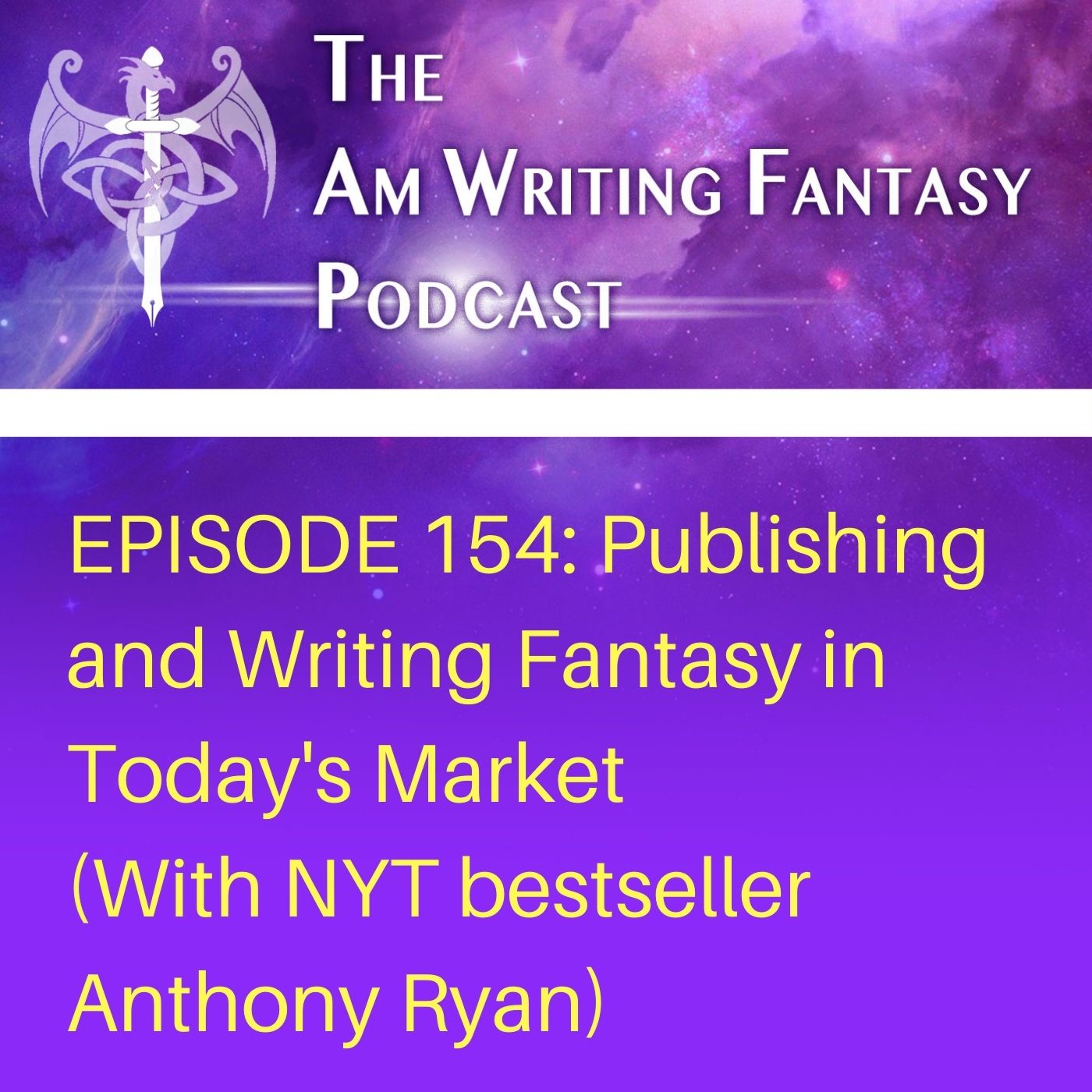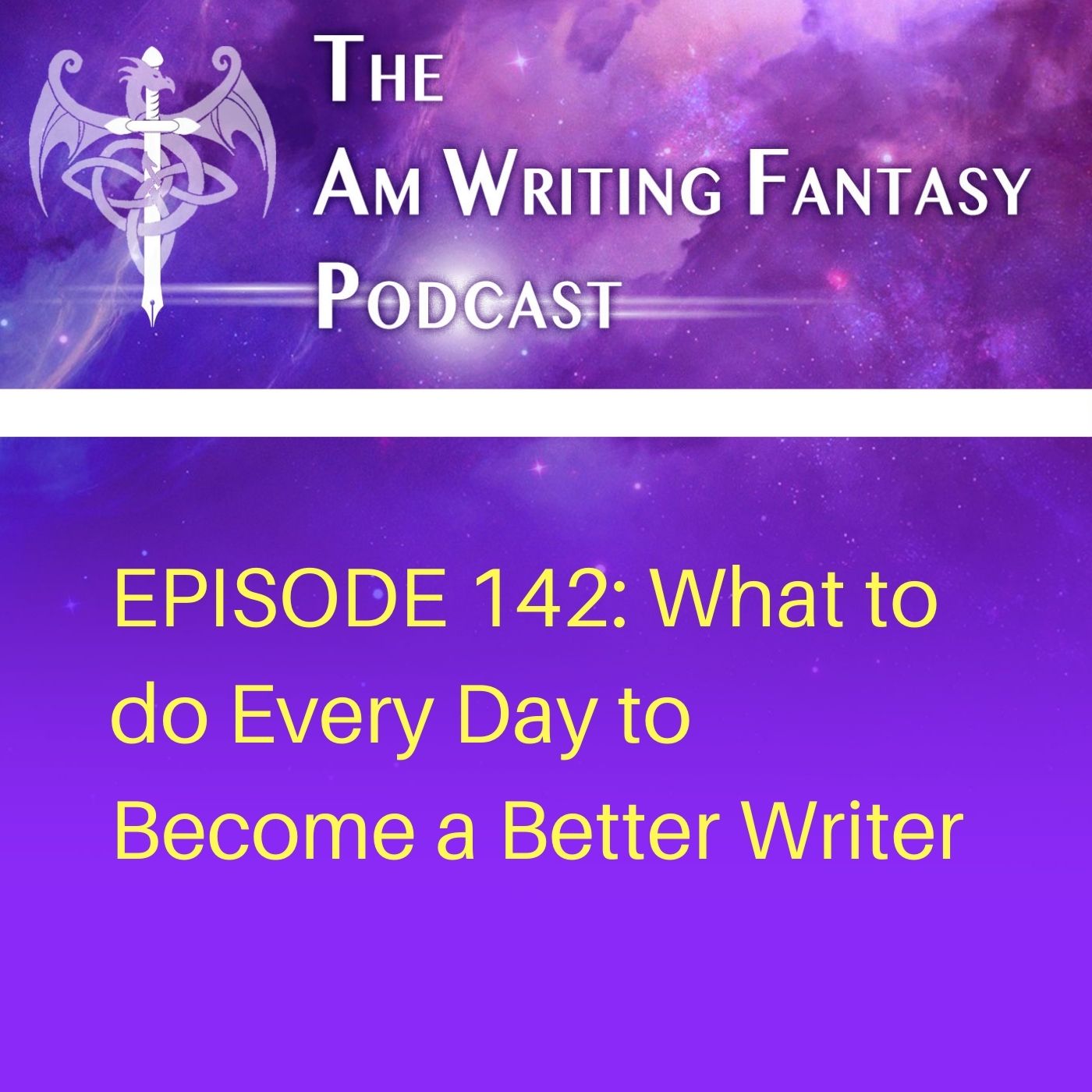The AmWritingFantasy Podcast: Episode 140 – How to Get a Literary Agent for Your Book (with Jane Friedman)
Description
What kind of stories are agents interested in? How do you find an agent and how do you know if the person is any good? And what about your publishing contract? What should you be mindful about there?
All these questions, and many more, are answered in this episode of the Am Writing Fantasy podcast by Jane Friedman.
Links to what was mentioned in the episode:
QueryTracker: http://querytracker.net
Duotrope: http://duotrope.com
Publishers Marketplace: http://publishersmarketplace.com
Not discussed during the interview, but this one is interesting as well: http://mswishlist.com
You can find Jane at: http://janefriedman.com
Tune in for new episodes EVERY single Monday.
SUPPORT THE AM WRITING FANTASY PODCAST!
Please tell a fellow author about the show and visit us at Apple podcast and leave a rating and review.
Join us at www.patreon.com/AmWritingFantasy. For as little as a dollar a month, you’ll get awesome rewards and keep the Am Writing Fantasy podcast going.
Read the full transcript below.
(Please note that it's automatically generated and while the AI is super cool, it isn't perfect. There may be misspellings or incorrect words on occasion).
Narrator (2s):
You're listening to The Am Writing Fantasy Podcast. In today's publishing landscape, you can reach fans all over the world. Query letters are a thing of the past. You don't even need in literary agent. There is nothing standing in the way of making a living from writing. Join two best selling authors who have self published more than in 20 books between them. Now onto the show with your hosts, Autumn Birt and Jesper Schmidt.
Jesper (30s):
Hello, I'm Jesper. And this is episode 140 of the Am Writing fantasy podcast. Autumn is busy launching her brand new novel today, so I've instead brought someone else on, so I won't be all alone because that will be pretty boring on a podcast.
Narrator (48s):
But joking aside, I have to say that I really looked forward to this conversation, our little piece of intro music there to the podcast says that you don't really need a literary agent, or worry about gatekeepers and all that stuff, but that is all true if we are talking about self publishing, but not so much, if you want to get a traditional publishing contract and Autumn and I have actually started talking a bit about maybe trying to become hybrid authors, meaning that we will have both self published books and traditionally published titles. And so I guess in some ways you could say that it's a bit of, for selfish reasons as well, that I'm are joined by the very knowledgeable Jane Friedman today.
Narrator (1m 31s):
Welcome to The Am Writing Fantasy Podcast, Jane, and I hope you won't mind me picking your brain today.
Jane (1m 38s):
Not at all. It's a pleasure to be here. Thank you.
Jesper (1m 41s):
Yeah. I have a sneaky suspicion that the quite a few of our listeners will already know who you are, Jane, but the, let me just, I'll try to give a short introduction, Jane, and then you can see if I miss out something important here. So Jane has more than 20 years of experience in the publishing industry. And in 2019, she was awarded what the publishing commentator of the year by digital digital book world. And Jane also has an incredibly popular, I guess I could say newsletter for authors with in 2020, it was awarded media outlet of the year.
Jesper (2m 23s):
And she also runs the award winning block for writers over@janefriedman.com and has been featured by New York times, Washington post publishers weekly. And the list just goes on and on. And that I miss anything that those are the important ones. Yeah. Yeah. And I think with those credentials, it's quite obvious why I want it to have a chat with you about traditional publishing, but maybe, maybe before we get into all of that, maybe you could just sort of share a bit about yourself that maybe has less to do with the business side, but more like who you are. So
Jane (2m 58s):
Yeah, I started in the business in the late 1990s, right out of college. So in some ways my, my life has been spent on nothing but publishing in one form or another. I did go full-time freelance in 2014. So I was traditionally employed out a book publishing company and a media company in the literary journal at a university. And then finally after, I guess it was 15 years, 15 years of, of working for other people. I decided to just embark on my own. So I've been very happy working independently.
Jane (3m 40s):
It's, it's a combination of doing the newsletter that you mentioned, which is for authors online teaching. And then I also do some consulting. So aside from that, you know, I do a lot, I do a lot of travel, but a lot of its because I go to the writing conferences. Mmm. So during the pandemic that certainly slowed down dramatically and I've spent a lot of time that my home office in the past year, but it's been good. I've been able to focus on things that I didn't have time for when I was traveling so much.
Jesper (4m 11s):
Yeah. W what, what drew you to publishing and writing original that, do you, do you do you know, it was more like some people stumbled out to collage and by coincidence they end up in some sort of industry, but I was there something in particular that drew in there.
Jane (4m 26s):
So it's, it's hard for me to say that I was drawn as much as it was the, maybe the process of elimination when I was growing up, I, I come from a very rural part of the United States. There wasn't a whole lot to do other than go to school and go to the library. My mother was a very bookish person. She was a librarian, in fact. So I spend a lot of hours in the library and I was just good at school. And I liked reading. And I dunno that I think this happens to many people who ultimately become English majors or they studied creative writing and they think, well, I I'd like books, I'll study literature. And so it just, I, but I think I'm fortunate in that I was able to turn that into something that actually pays the bills.
Jane (5m 10s):
Not everyone does that.
Jesper (5m 12s):
Oh, I know that. That's true. Yeah. I still have very fond memories myself of the library when I was a kid. I just, I don't know. I just love I could spend hours and hours in their well, but back then, it was the most comic books I was looking at. Of course. But yeah, you could just go out and take a new one and another one in another one in, and sit there for hours. Just go through all those pages. I don't know. There's something about it. Isn't that? I don't know what it is.
Jane (5m 36s):
Yeah. I I've always been drawn to bookstores and libraries from a young age, although I will admit now in the digital landscape it's I do a lot less of that. And I do have as much of a fascination with computers and with figuring things out from a digital media perspective. So I like bringing those two areas together.
Jesper (5m 58s):
Right, right. Yeah. OK. Well, in terms of, of talking about traditionally publishing contracts and how to get one, which is actually something that I'm, we are asked, but not all the time, but on a similar, a regular basis on them. And I, my cohost asked about how to, how to do that, how to get those kinds of contracts. And honestly, we're not the best one to advise on this because while autumn, they did have a contract like 10, 15 years ago, but I don't, we are not like the expert on this topic. And also, as I said, a bit earlier, 'cause we actually considering trying maybe to see if we can find an agent for ourself maybe in the years time or something, once we have a novel written for that particular purpose, I was thinking that maybe we could just try to structure our conversation in, in the same fashion light, sort of a bit of step-by-step where, where did we start and, and with what happens next to the next time.
Jesper (6m 56s):
So on, in the process, because then it might make a bit more sense for the listener. And obviously where we start is with the story of self, you know, and do you, do we need to sort of think about what kind of story or what kind of novel we are we right. If we want to get it traditionally published?
Jane (7m 18s):
Oh, a little bit, but not too much. So in other words, I think first and foremost, you need to write the story you feel called to riot, or that your interested in writing or, or that you are passionate about. And that's sort of cliched advice. You hear a lot, but its true that it takes far too much work, especially in my mind to go through the traditional publishing process, to try and write something that you think is going to just fit the market. To me, that's actually what self publishers do. There are always studying what's happening in the market and trying to jump on where the readers are going that happens in traditional publishing to, but I think there's also a concern for what's this writer doing that only they can do on, usually it comes out of your own obsessions or interest areas.
Jane (8m 12s):
So, but on the, on the other hand, you know, you do have to be aware of kind of the model that traditional publishing works under, which is the way, if you're a first time author for them, they want the book to be a certain length. You know, they're going to get dissuaded. If your book is say more than 150,000 words are more than 120,000 words, it's usually the, where things start to get rejected more often because it's just too long when they don't know you yet as an author, they haven't established an audience for you yet just costs more in terms of time and editin























